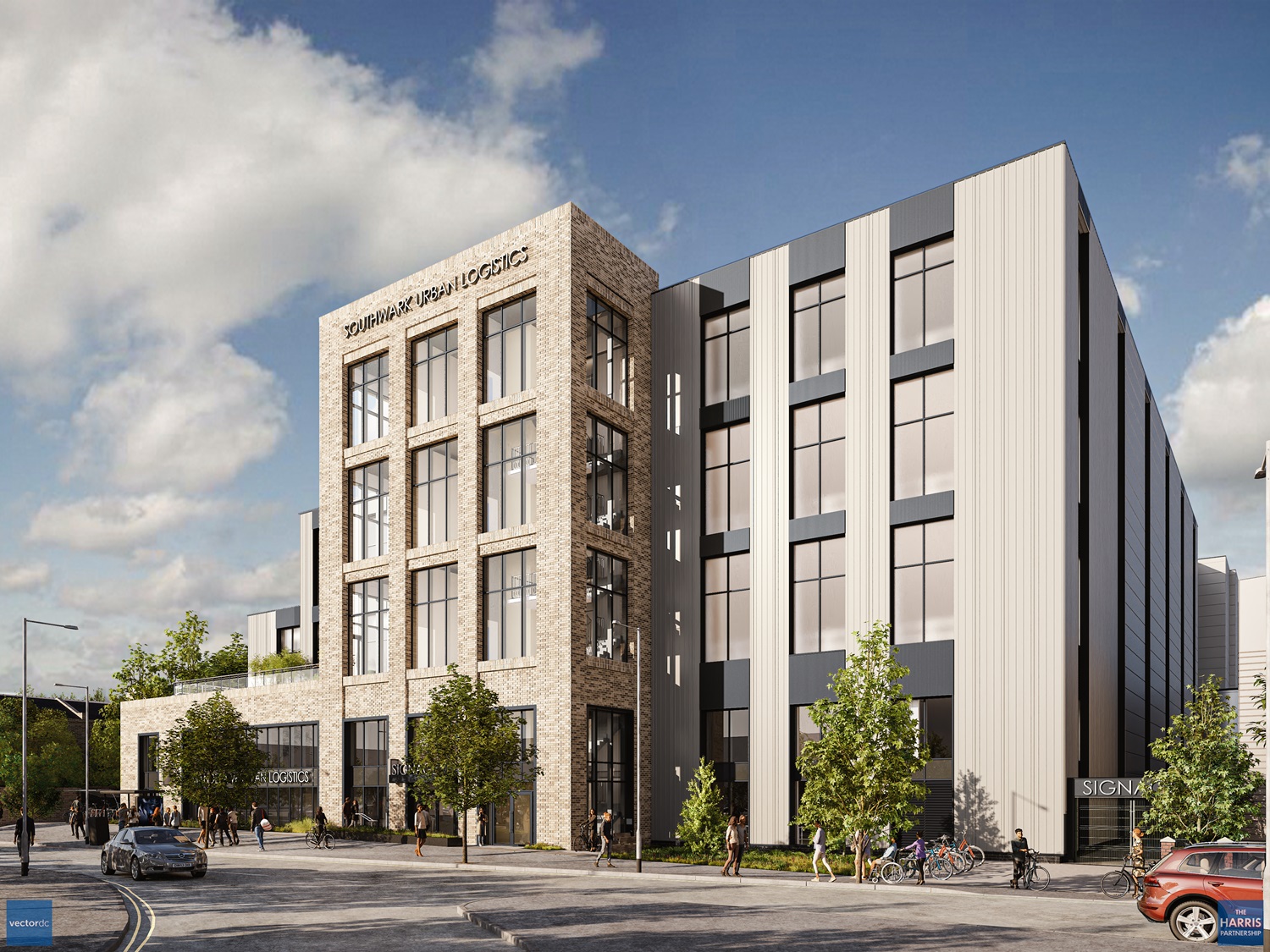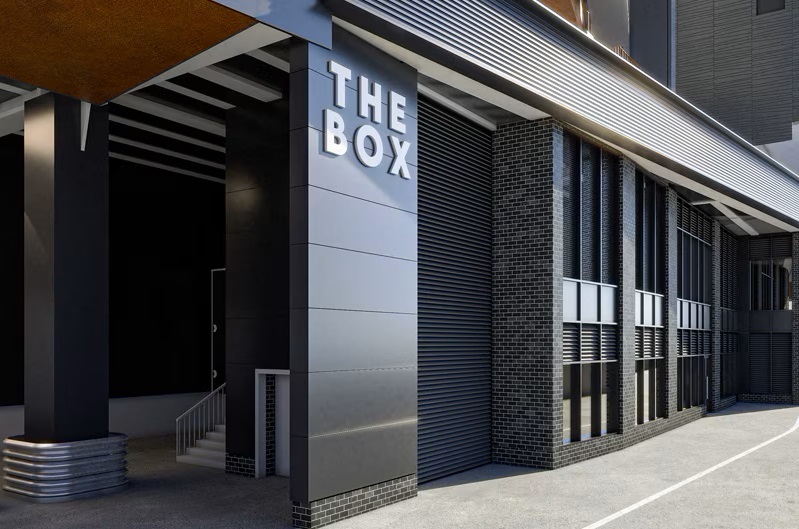Microhubs – The low-carbon future of urban logistics
Whitepaper
With growing consumer demand for ultrafast deliveries in city centre locations, British Land commissioned research by Centre for London and University College London into the potential for urban logistics hubs in city centres (‘microhubs’) to cut carbon and pollution from last-mile freight distribution, and to improve efficiency and reliability for customers.
Report commissioned by British Land
The research included interviews by Centre for London with logistics experts and policymakers, and a review by UCL of the benefits of microhubs and analysis of suitable locations across London.
Mike Best, Head of Logistics at British Land, Claire Harding from Centre for London and Peter Jones from UCL discuss the findings, exploring why microhubs are central to the low carbon future of urban logistics, along with a host of other social benefits.
Growing demand and complexity
Peter: As a result of the pandemic, demand for home deliveries has grown fast. This is particularly the case for same-day and instant delivery, which had already increased by an average of 36% and 17% per year respectively, pre-Covid.1 Businesses are also relying more on just-in-time deliveries, often holding less stock and relying more on suppliers for services previously done in-house.
Claire: Although this boom in deliveries gives new convenience and experiences, it comes with major impacts on emissions, air quality, congestion and road safety. London is a big challenge within urban logistics. Its centre is distant from out-of-town logistics hubs; traffic congestion often leads to delays; and lorries and vans struggle on its smaller streets and can pose dangers to pedestrians and cyclists. Logistics operators tell us that, to switch to smaller, lower carbon, less polluting delivery vehicles, they need city centre hubs.
Mike: British Land started from the premise that, by putting the right logistics facilities at the right point, we could facilitate customers in reducing the carbon footprint of their deliveries and improving efficiency. In two years, we’ve built a pipeline of urban logistics space with a gross development value of £1.5bn which spans Greater London, with wider opportunities across the UK.
Environmental benefits
Peter: Microhubs that facilitate deliveries by electric cargo bikes are a powerful possible solution to decrease the environmental and health impacts of urban freight. They have been implemented with success in cities around the world, with studies showing significant carbon savings, reductions in local air pollutants and lower delivery worker heart rates.2 Studies in London have seen carbon savings of 55-90% per parcel and reductions in total distance travelled of 11-20%.2
Claire: Low carbon deliveries are a visible way for businesses to show their green credentials. They support local authority goals too, not only around net zero, but also improving air quality, reducing noise pollution and enhancing the environment for pedestrians. With London’s policymakers very focused on emissions and air quality – and their track record for innovation – it’s a positive environment for companies looking to decarbonise deliveries.
Commercial efficiencies
Mike: As we at British Land work to transition our own portfolio to net zero carbon by 2030, we value the environmental benefits of microhubs. To drive take-up, they also need to give customers commercial efficiencies. Research shows that delivering by cargo bike is significantly quicker in London’s traffic3 – London is the slowest city to drive in worldwide4 – and cargo bikes are cheaper to acquire and maintain.
Peter: International studies show that microhubs can improve efficiency and service quality, with faster, more reliable and more flexible deliveries, compared with conventional networks. These include 28-31% reductions in delivery costs by using cargo cycles from microhubs.2 One survey found that 36% of customers were willing to pay extra for deliveries from a microhub inside the city,2 reflecting both the environmental benefits and the expected increase in service quality, as bikes tend to give more accurate delivery times, due to fewer traffic delays.
Mike: UCL’s locational analysis has helped us identify where in London we have sites that will offer both commercial and environmental benefits and tap into a local workforce. As part of this, we’re looking to repurpose the former Crossrail works site beneath Paddington Central. This hub will operate with small electric vehicles and electric cargo bikes, removing around 100 large vans from Westminster’s roads every day and is expected to save three times the carbon absorbed by all the trees in Hyde Park.
Social impact and employment
Claire: Microhubs also bring wider benefits. If you’re a community, café owner or local authority looking to create an attractive outdoor environment, delivery vans are a worry. For hundreds of years, deliveries were made by hand, usually by a local workforce. Microhubs are regrowing something that has been part of society for a long time. Some cargo bike services are starting to link small businesses. I recently saw a delivery rider putting bread from a local bakery into displays in a local café and enjoying a free coffee in return.
Peter: There are opportunities for microhubs to improve the experience for delivery workers too. Van drivers often only have two minutes to make a delivery before risking a PCN fine. This time pressure can be highly stressful – and makes it very difficult to take a toilet break. Hubs will add welfare facilities in convenient locations and cargo bikes are easier to park centrally when riders need a break. This needs to be supported by upgrades to cycle infrastructure for safety.
Mike: Creating a positive social impact in our communities is important to British Land. We’re interested in how microhubs could create flexible employment and training opportunities for local people, as riders, bike mechanics and more. On all our campuses, logistics customers will be able to tap into our social impact programme, including collaborative community funds and volunteering opportunities.
Unlocking last-mile logistics in London
Claire: London’s congestion charge is 20 years old this year. While it was successful at dropping car use, the number of delivery vans and taxis has increased. So, the next set of solutions needs to focus on commercial vehicles. With better, safer cycle infrastructure, microhubs and cargo bikes have a lot of potential. Policymakers’ earlier focus on commuters means there are good radial cycle routes from central London. But it is much harder to move laterally – the cycle equivalent of the south and north circulars. Improving this would be a win, win, win – supporting low carbon deliveries, active travel and community connections.
Peter: Without action, the problems we’ve discussed will intensify – as same-day and instant deliveries (which tend to be less efficient) are still on the up, and as new road uses and mobility systems (such as e-scooters, car clubs and cycle lanes) increase, making road space for freight vehicles even scarcer. The question needs to move from ‘where can we use cargo bikes?’ to ‘where can’t we – and can we change that?’.
Mike: Urban logistics in central London is the fastest growing part of the logistics market. With British Land’s skillset in delivering complex, mixed-use, sustainable development and our strategically located portfolio, we’re well positioned to unlock last-mile logistics space in London – both by repurposing existing buildings, like at Paddington Central, and by building hubs into our developments. We’re excited about the contribution this will make to the low carbon future of logistics.
University College London: ‘A strategy for developing low-carbon microhubs in London’ (2023)
Centre for London: ‘Urban logistics hubs: what are London’s needs?’ (2023)

